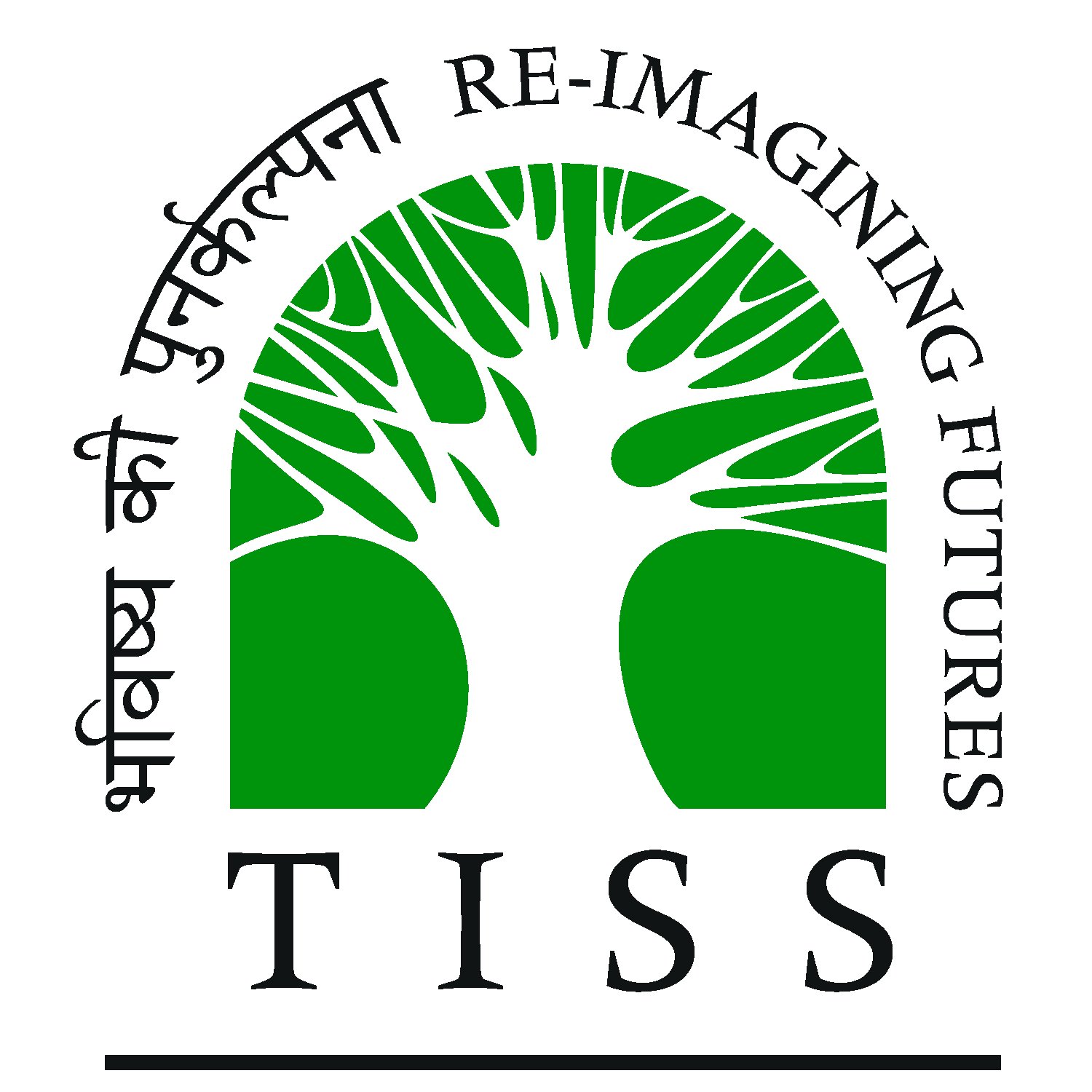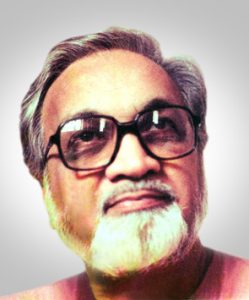
Vijay Tendulkar
Prof. Vijay Tendulkar, who in 1978 initiated what is now the School of Media and Cultural Studies, passed away in May 2008. In an illustrious career spanning over half a century, Prof. Tendulkar was one of the most seminal and influential voices within the contemporary cultural landscape. Outspoken and fearless, he questioned dominant power equations through his work, bearing witness to the complexity of relationships in social life.
His controversial and pathbreaking plays include Sakhārām Binder, Ghāshirām Kotwāl both written in 1972. He was deeply interested in the workings of mob psychology and was awarded a “Jawaharlal Nehru Fellowship” (1974-75) for a project titled, “An Enquiry Into the Pattern of Growing Violence in Society and Its Relevance to Contemporary Theatre”. With over six thousand performances in its original and translated versions, “Ghāshirām Kotwāl” remains one of the longest-running plays in the history of Indian theater. Tendulkar’s work on violence found creative expression in his screenplays for the films Nishānt(1974), Ākrosh (1980), and Ardh Satya (1984). We were indeed fortunate to have him with us as visiting professor between 1978 and 1983. It was during this period that he worked on several significant screenplays, including Aakrosh and Ardha Satya.
Prof. Tendulkar produced a series of audio-visual programmes on significant development projects across the country, assisted by Mr. Mukund Sawant, producer in SMCS. As an outcome of his work, TISS decided to set up a centre for media production, initially titled Unit for Audio-Visual Records, which in its present avatar is the School of Media and Cultural Studies. Today, we remember him with gratitude and fondness and salute his vision and inspiration which have played a seminal role in the development of SMCS.
As a tribute to his significant contribution, the School has initiated the Vijay Tendulkar Memorial Prize for the Best Student in MA. Media and Cultural Studies.
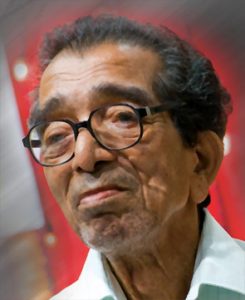
Narayan Surve
The noted Marathi poet, Narayan Surve, who passed away on August 16, 2010, was in every way a remarkable human being. Abandoned as a baby on the footpath, he was picked up by a mill worker and brought up in the mill areas of Mumbai. He was again left to fend for himself at the age of 10, worked as a child labourer in the mills, did several odd jobs, living on the pavements of the city. He was involved in the Left movement at an early age and also participated in the freedom struggle. By dint of hard work, he became a peon in a municipal school, passed the school leaving exam and became a teacher. Surve Master, Comrade Surve, Surve the revolutionary poet—in all these avatars, he gave of himself selflessly and freely, carving out for himself a unique niche in the Marathi literary scene. His poetry is remarkable for its originality, simplicity, humour and its affirmation of the energy of the marginal people—the mill worker, the prostitute, the woman worker, the horse-shoer, and so many other figures come alive in his powerful poetry. He was a friend of SMCS and featured in the film Saacha (2001).
As a tribute to his significant contribution and to commemorate his association with School, SMCS has instituted the Narayan Surve Memorial Prize for the Second best Student in MA. Media and Cultural Studies.
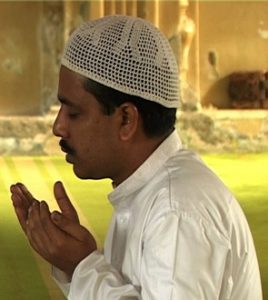
Waqar Pyare Khan
Waqar Pyare Khan, who passed away suddenly after a massive heart attack in April 2009, has made an irreplaceable contribution to secular initiatives in Mumbai. Born in 1965, Waqar Khan was a small manufacturer who came to the city in the 1980s as a migrant from UP and hawked bananas before he gradually built up a garment business. He lived and worked in Dharavi, Mumbai.
The 1992-93 riots, which badly affected Dharavi, constituted a watershed event in life of Waqar, which made him realise the importance of working for communal harmony. He along with his friend Bhau Korde got involved in various peace initiatives, which included the Dharavi Mohalla Committee, set up by Mr. Satish Sawhney, the then Police Commissioner and other citizens. It was through this activity that Waqar first met Bhau. They became good friends and colleagues, who along with several others, worked tirelessly to restore community trust and build up destroyed relationships.
The School of Media and Cultural Studies, Tata Institute of Social Sciences, has documented the inspiring work of Waqar Khan and Bhau Korde in the film Naata (The Bond), which was also telecast by NDTV 24×7, after the Mumbai attacks. What is remarkable is that both of them have been able to mobilise local support and resources in order to create materials that have been popular with slum audiences. Often, media materials produced for communal harmony end up preaching to the converted. They reach a select, elite group of ‘secular-minded’ individuals. Waqarbhai and Bhau Korde have been able to appropriate the language and idiom of the popular to make a convincing case for communal amity that reaches audiences, which are often neglected by the secular media. Their media work is integrated with a commitment to ensure peace through various other means, such as holding local meetings, taking stands on issues, expressing a voice of moderation and tolerance. In the ultimate analysis, it is sustained and committed grassroots initiatives such as these which hold the promise of change and hope in these troubled times.
In grateful recognition of his important contribution to the cause of alternative media, the School of Media and Cultural Studies instituted the Waqar Pyare Khan Memorial Prize for the Best Media Project.
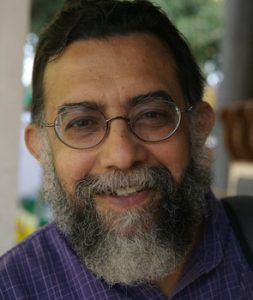
Smitu Kothari
Another close friend of SMCS and of TISS passed away in March 2009. Smitu Kothari was a leading social and environmental activist in India, who worked tirelessly and selflessly for various social justice movements. A scholar-activist, Smitu was an important voice in the movement against large dams, particularly the Narmada Bachao Andolan (Save the Narmada Movement). He founded Lokayan and Intercultural Resources in Delhi and was a visiting professor at Princeton, Cornell and at TISS.
As a humble tribute to him, the School of Media and Cultural Studies has dedicated the best student research project prize in media and cultural studies to his memory: The Smitu Kothari Memorial Prize for the Best Research Project.

